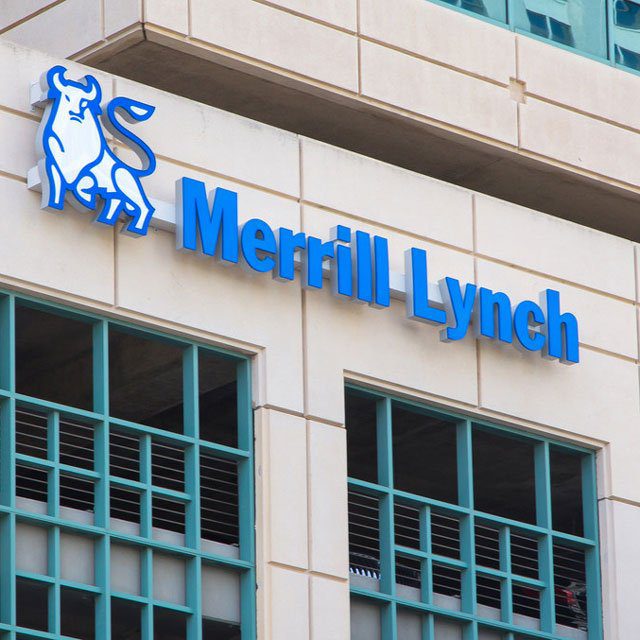Top 5 Q3 Trends at Merrill Wealth Management

Bank of America’s Merrill Lynch Wealth Management division had a mostly strong third quarter ended Sept. 30 that, in a Monday conference call with reporters, Andy Sieg, the division’s president, largely credited to the performance of the firm’s advisors during a quarter of strong recruiting results.
Overall, BofA reported revenue, net of interest expense, increased 8% to $24.5 billion, while profit fell to $7.1 billion from $7.7 billion a year ago.
Income in the Global Wealth and Investment Management division, which includes Merrill Lynch Wealth Management, was flat at $1.2 billion. But revenue grew 2% to $5.4 billion.
The firm reported wealth management client balances of $3.2 trillion, down 12% from a year ago, “driven by lower market valuations, partially offset by net client flows,” it said in an earnings news release.
Merrill Lynch and BofA Private Bank combined added over 5,700 net new client relationships in Q3, Sieg said on the call. The quarter ended with assets under management of $1.3 trillion.
The firm, meanwhile, ended Q3 with 18,841 advisors across the wealth management divisions, Sieg said.
Here are the top five trends in Merrill wealth management based on the Q3 results and executive commentary.
1. Recruiting was strong in the quarter.
The firm reported having 18,841 advisors at the end of Q3, up from the 18,500 it reported for the second quarter. Previously, the firm had seen advisory staff shrinkage in every quarter since Q3 of 2021 as it prepared to start a revamped, 18-month advisor training program.
Q3 was the firm’s best quarter ever in terms of attracting experienced advisors, according to Sieg.
2. More clients are remaining with the firm even if their advisors leave.
When advisors leave BofA Private Bank and Merrill Lynch for other firms, the company is seeing a growing number of their clients staying with the firm, Sieg told reporters. About 50% of their clients are now being retained by the company, he said, noting that’s an increase of more than 10 percentage points from where the company was two years ago.




